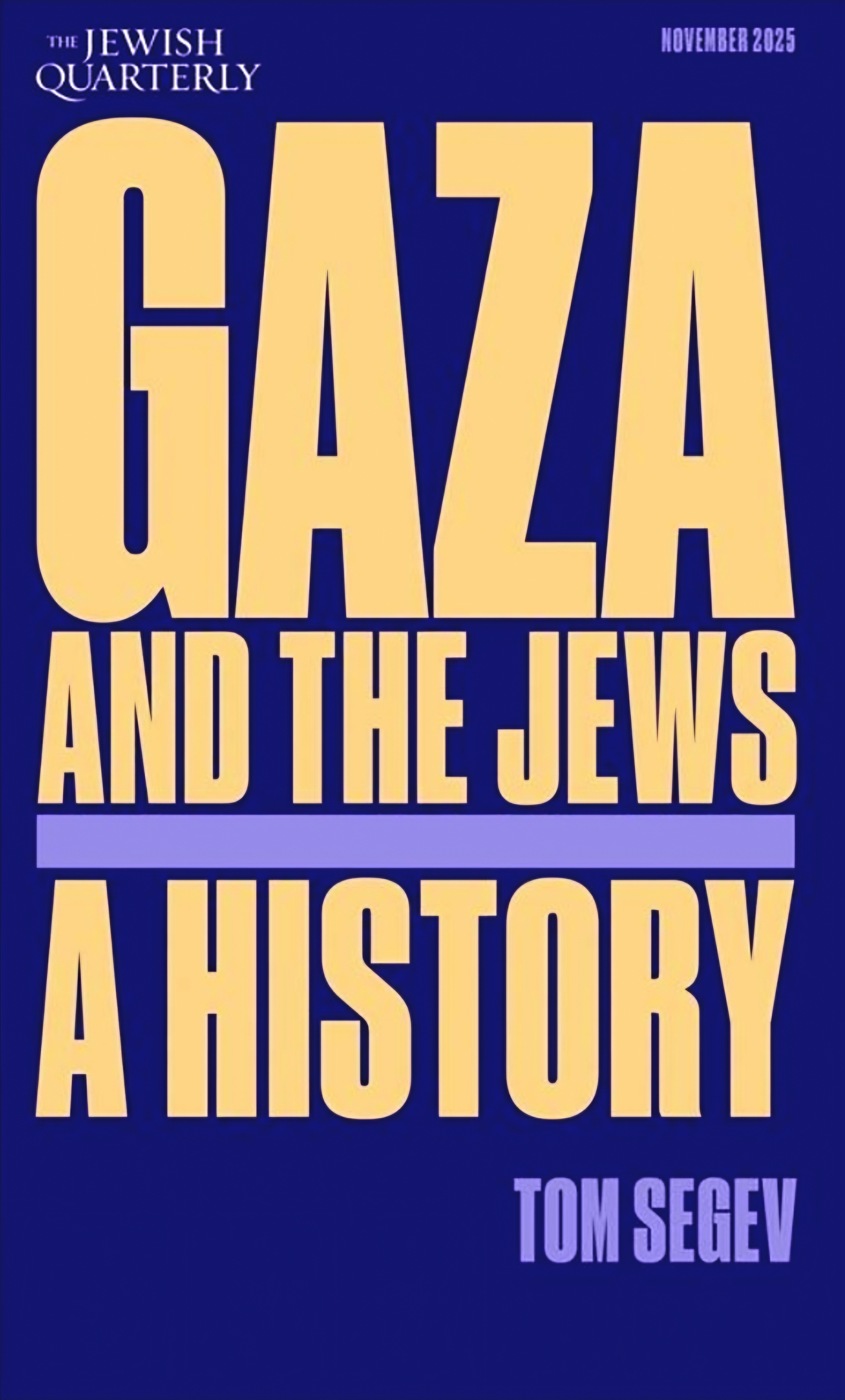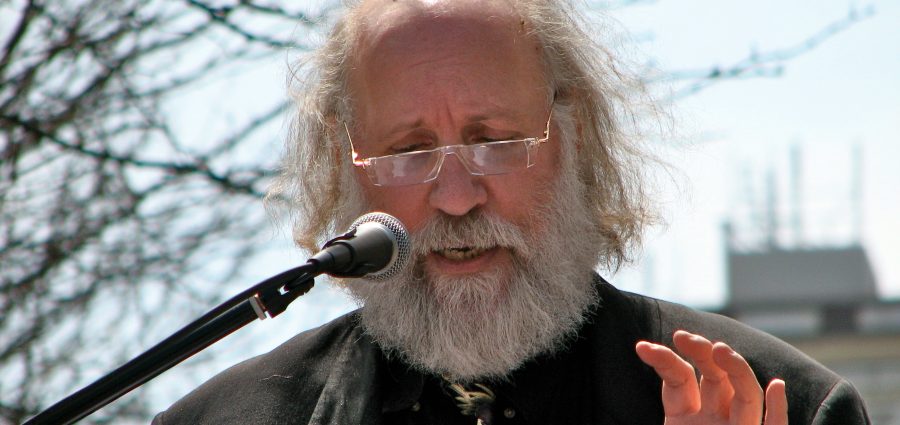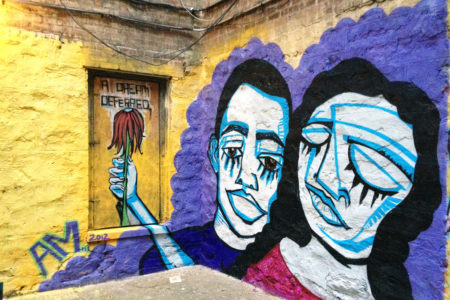My first acquaintance with The Jewish Quarterly (JQ) came by way of a miniature treasure—small in dimensions but towering in scope—that arrived in my mailbox after I ordered it from Yivo: The Rudashevski Diary. Just 204 pages of a small handwritten notebook, were fully and superbly translated from Yiddish and accompanied by a wonderful introduction. The diary was the work of Yitzchak Rudashevski begun at age 14 in 1941 and completed in 1943, all of it composed in the Vilna ghetto.

“The first ghetto day begins. I run right into the street. The little streets are still full of a restless mass of people. It is hard to push your way through. I feel as if I were in a box. There is no air to breathe… It is Yom Kippur Eve. A sad mood suffuses the ghetto. People have such a sad High Holy Day feeling. I am as far from religion now as before the ghetto. Nevertheless, this holiday is drenched in blood and sorrow which is solemnized in the ghetto, now penetrates my heart. In the evening I felt so sad at heart. People sit at home and weep. They remind themselves of the past… Drenching each other with tears as they embrace… I run out into the streets and there it is also the same: sorrow flows over the little streets, the ghetto is drenched in tears. The hearts which have turned to stone in the grip of ghetto woes and did not have time to weep their fill have now in this evening of lamentation poured out all their bitterness.”
He talks as well about the pleasures available. He joins a group collecting ghetto folklore—ghetto jokes, ghetto blessings, ghetto curses, all of which he understands must be preserved for whatever future may exist. What his diary doesn’t include is Anne Frank’s concluding gesture recognizing universal human goodness, though, s others have said, she is unlikely to have voiced that sentiment from Auschwitz. In September 1943 Yitzchak and his family were taken to Ponar and murdered in a mass grave. His cousin survived, found the diary, and The Jewish Quarterly has brought it to us.
The diary arrives in JQ’s signature format, a 5 by 8.5 inch paperback book devoted to a single long essay by one author. I did not realize that was the journal’s format when I read Rudashevski’s diary. But not long after that they invited me to write an essay on the state of higher education that became Mindless: What Happened to Universities. After they invited me I subscribed and purchased back issues as well, as I wanted to know more about the project. The journal was founded by Jacob Sonntag in 1953 and was published in the UK until it ceased publication in 2019. It is now organized under license by Morry Schwartz and relaunched in this new single-author format in 2021.
When I was invited to contribute, I was warned that JQ took copy editing seriously. They are committed to reaching a general educated readership and to taking on Jewish themed topics of importance and wide interest. I assured the editor, Jonathan Pearlman, that I welcomed great copy editing, but that did not actually prepare me for what was in store for me. A month or so after submitting my manuscript, I got back a text dense with queries and suggestions. “Not sure a general reader can follow this argument. Please clarify.” “This quotation might be longer than necessary. Can you isolate the central point?” I thought most of the suggestions made sense, given JQ’s goals. So I thanked the staff and returned the text. It was at that point that I learned it would then go to a second copy editor, and the process would begin again. Still naive, I did not learn until later that copy editor number 3 was waiting in the wings.
Dedicated staff time like that does not come cheaply. JQ has made an investment in the hope, not of making a profit, but of building sufficient subscriptions to make the process self-sustaining. They are not there yet, but I am committed to helping them get there. They did not ask me to, but I believe this is a great way to build a community of well-informed, engaged readers.
The concise, clear, and exceptionally well-written character of the books—four published each year—makes a subscription a great gift and the individual books, all available from online booksellers, ideal for class assignment.
I was immediately drawn to Hadley Freeman’s Blindness: October 7 and the Left since it was at the core of the struggle I was conducting with my own history and with the post-10/7 campus. Freeman is blunt and to the point: “You cannot ‘weaponize’ antisemitism—a tedious zeitgeist term for ‘exploiting’ antisemitism—if antisemitism isn’t there to be weaponized.” Or: “So many Western activists—especially in the US—see the Palestinians as akin to black slaves and the Israelis as plantation owners, with a total lack of embarrassment about their historical ignorance.” We cannot break out of these pervasive sentiments without a certain amount of provocation. She provides that, along with the substantive analysis that makes for welcome reflection.
Adam Kirsch’s The Z Word: Reclaiming Zionism works as a companion to his concise 2024 On Settler Colonialism: Ideology, Violence, and Justice. It tackles the competing conception of the Jewish homeland. He was working against the risk that readers would assume they knew where he stood before they read it, so he decided to stage the essay as a debate between sympathetic and unsympathetic views of its subject. You really cannot be certain how he will resolve the debate until the end. Whether for a community reading group or a class about Israel that seems a perfect strategy. Opposing groups will each feel themselves well represented and will be able to use the book to continue the conversation.
On the one hand, for example, “equating anti-Zionism with antisemitism also makes emotional sense, since most Jews feel that some kind of attachment to Israel is a central part of their Jewish identity.” On the other hand, if the only defence against anti-Zionism is to claim that it is really antisemitism, the world will conclude that Zionism cannot be defended.” Similarly, “charges of genocide and extermination against Israel were never intended to be statements of fact. Rather, they express a sense that the existence of Israel as a Jewish state itself constitutes a kind of genocide.” On the other hand, “when enough people decide to call something a genocide, it becomes one.”
Tanya Gold’s Shameless: Exploiting the Holocaust is a book you are likely to consult repeatedly, not just because its taut, flawless prose, but more so because she discusses—and often dissects—eleven Holocaust memoirs, novels, and films that she feels betray the legacy of their subject, along with a similar number that she praises. She warns us in advance why many fail: “I re-read and rewatched the famous works that are apparently about the Shoah; the blockbuster novels and films that non-Jews read and watch; the literary novels pseudo-intellectuals praise. And I understood, for the first time, the connection between the emphasis, glibness and heartlessness of these works, and the existence—the continuation—of the hatred that created the Shoah. Because they amount to, by installments—sometimes subconsciously, sometimes not—the erasure of the Jew from the Shoah, and his own history.
She begins with Anne Frank’s Diary, a book whose prose she loves, but whose uses she despises: “To the cult, Anne is an object of fascination and projection a ghost, a German-Jewish child who does not know she is dead… They go to her for consolation: to learn that the world is still a kindly place.” They obtain “forgiveness from Anne, because she forgives us, and an active absolution by reading her… I think this is another reason why people read her: to imagine that she did not die. …Anne Frank, who died because she was a Jew, became a paragon of universal love, the thing she least embodies. She is equally eloquent about the book’s strengths and its honesty.
She is precise about the problems with William Styron’s Sophie’s Choice, which is not about “the annihilation of the European Jewish nation” but about its author’s “own vanity and fear.” Its worst violence to history is the place Sophie occupies. In Styron’s own words, which Gold quotes: “Although she was not Jewish, she had suffered as much as any Jew who had survived the same afflictions, and… had in certain profound ways suffered more than most.” That anti-Jewish universalism is not a good basis on which to think about modern history’s worst Jewish catastrophe.
On the other hand, she champions Martin Amis Claude Lanzmann, Primo Levi, Philip Roth, Elie Wiesel, and others. Some of her reviews are mixed, but she finds both things to admire and regret in the work of Steven Spielberg and others. We can return to Shameless not only to recall what she said about existing works but also for suggestions about the principles that can help us think about new books and films.
The next JQ book will be Tom Segev’s Gaza and the Jews: A History. If you are familiar with the record of books on Gaza, then you know they typically have little interest in or tolerance for the Jewish role there, not only the recently partly Jewish Gaza but over centuries. Norman Finkelstein’s Gaza: An Inquest into Its Martyrdom, which I happen to own, given the University of California Press imprint in 2018, may be the worst. It is more a prosecutorial brief than an objective history. Tom Segev corrects that imbalance, once again in JQ’s welcome format.
No one can master all the publications on the subjects JQ has already addressed or has waiting in the wings. But JQ’s little books are often enough to prompt properly complex understanding of these hotly debated topics. A subscription brings the books into your personal collection or into your college library. At $56 annually in the US for a personal print subscription, or $14 per book/issue, JQ is a bargain. It is a small investment with a big payoff.
Indeed, subscriber benefits include complete access to the large JQ archive of its whole history. You can recover more than sixty essays, memoirs, poems, and research reports documenting the development of contemporary thought about the Holocaust, beginning with survivor voices, moving through scholarship on Nazi Germany and Eastern Europe, and reflections on how to teach the Holocaust. You can do the same with work about Yiddish issues, ranging from fiction and poetry to a wide selection of scholarly work. Or review decades of contributions on gender, sexuality, and Jewish women.
About Cary Nelson
Cary Nelson is Jubilee Professor of Liberal Arts & Sciences at the University of Illinois at Urbana-Champaign and the co-editor of The Case Against Academic Boycotts of Israel. His essay Mindless: What Happened to Universities? was featured in JQ259.
About Tom Segev
Tom Segev (Hebrew: תום שגב; born March 1, 1945) is an award-winning Israeli historian, author and journalist. He is associated with Israel’s New Historians, a group critical of many of the country’s traditional narratives.
His books include One Palestine, Complete;The Seventh Million and A State at Any Cost: The Life of David Ben-Gurion.
Note: A Note from Cary Nelson first appeared in The Times of Israel.
Featured image courtesy of Sage Ross.









